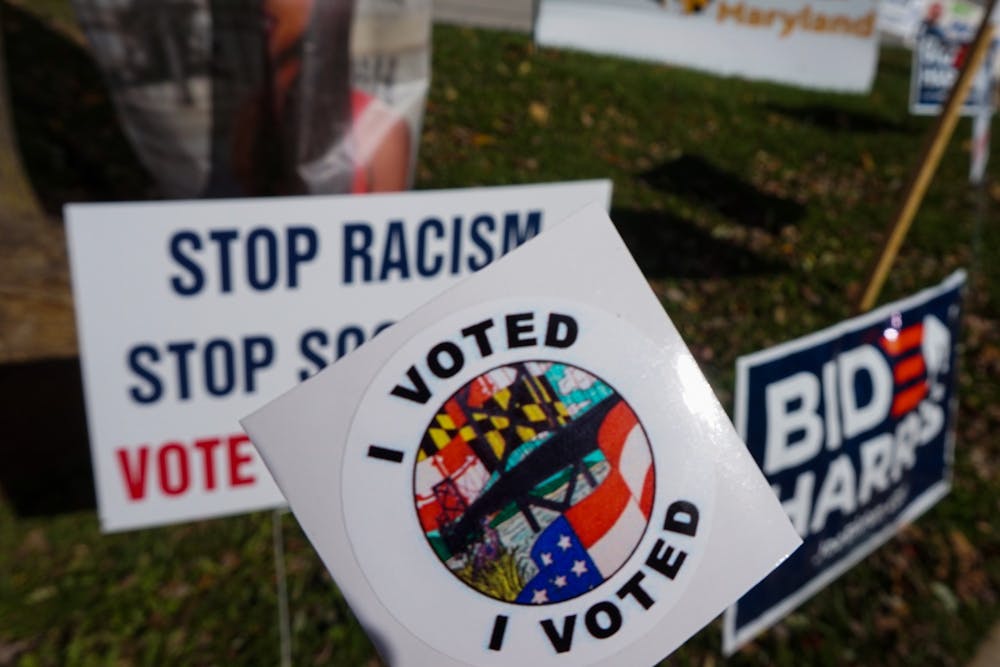
The Biden administration has been in office for a little over two weeks and is busy, signing 42 executive orders and confirming one of the most diverse Cabinets in American history. While these actions are a welcome affirmation of the tireless work of organizers and voters to get the Biden-Harris ticket elected, it’s essential we remember our work must continue and we must stay present past the first 100 days of this new administration. It’s important to realize the privilege we hold as Penn students to be civically engaged only when it is convenient for us. So yes, let’s celebrate the election of the Biden administration, but also find ways to stay engaged and hold our politicians accountable that go beyond hashtags and story posts.
In the months ahead, take your civic engagement one step further. Educate yourself on why certain populations in America are so frequently discriminated against. Discover how this marginalization impacts people’s access to basic rights like housing and healthcare. Programming like SNF Paideia preceptorials and even courses taught by Penn professors make it easy to educate yourself on the structural racism experienced by many in this country. An example includes a preceptorial on “Racism and Anti-Racism in Contemporary America.” Through these kinds of programs and with the wealth of information now available online, there is truly no excuse for Penn students to be ignorant of or disconnected from the marginalization of minority communities in our country.
Further, take Academically Based Community Service (ABCS) courses, which are designed to help students develop their activism by working with Philadelphians in all areas of life, from education to health to the environment. These courses are offered through the Netter Center, which provides many other avenues for partnering with the local community and resources for enhancing civic engagement to the Penn community. Civic House is another Penn organization with similar intentions of providing Penn students with the chance to make a difference in disadvantaged communities through projects like alternative spring breaks and tutoring projects. These are all forms of meaningful engagement that students can take that, while a little more time-intensive, do a whole lot more good than a daily reshare of a “so you want to talk about” post on Instagram.
A side effect of the wave of “activism” that swept the country last summer includes an inaccurate picture of what it looks like to be an organizer at the grassroots level. Protesting has become glamorized while in truth organizing is a brutal job that no one should have to do. The hours it requires add up to more than that required of a full-time job, not to mention the emotional exhaustion that comes with fighting for your basic human rights and the rights of others in a slow, encumbered, political system that takes time to respond to change. So rather than pick up a poster and march once or twice, find ways to help those who have dedicated their lives to working on the ground. These individuals are the true drivers of change. Volunteering with or donating to organizations like Philly We Rise or Mutual Aid Philly gives us the opportunity to show we care about these causes in meaningful ways.
You can also commit your time to staying updated on legislative actions being taken, or rather not being taken, at the federal and local levels. Be engaged with Penn Dems, who keep track of key policy decisions in the national legislature and executive branch, or even tune in to Philly City Council meetings to get a perspective on the issues facing those who call West Philly home 365 days a year. Information from these kinds of sources can help students decide who to vote for in future elections and see if their representatives are keeping their campaign promises, but more importantly, can allow students to understand the needs of people outside the Penn bubble.
As Penn students and visitors in the West Philadelphia community, the decision to stay informed, show up, and be civically engaged is ours. But it is one we must be willing to make each day, in ways that go past social media activism, if we truly want to create change in the lives of those around us.
ALEX EAPEN is a first-year in the College from Elkridge, MD. His email is aeapen@sas.upenn.edu.
The Daily Pennsylvanian is an independent, student-run newspaper. Please consider making a donation to support the coverage that shapes the University. Your generosity ensures a future of strong journalism at Penn.
Donate







